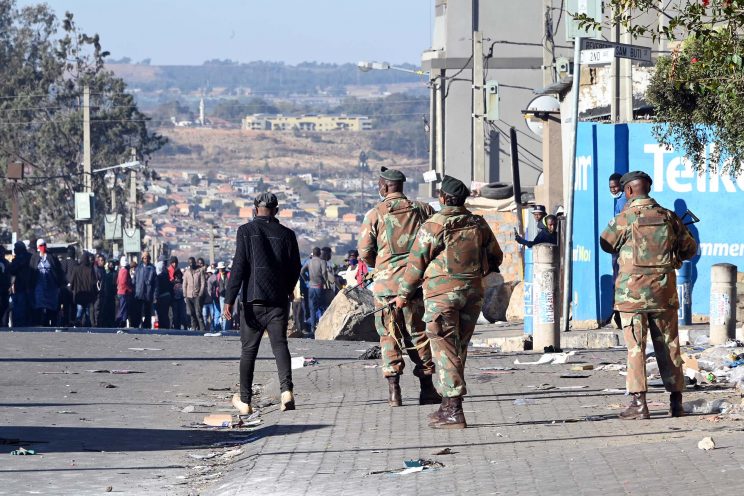The July 2021 unrest cost the country’s economy an estimated R50bn Photo GCIS
Johannesburg – As time passes the prospect that those responsible for the July unrest will go unpunished becomes a reality. South Africans were told those responsible for the devastation caused have been identified, yet to date, none of the so-called twelve have seen the inside of a courtroom.
Chaos broke out in July 2021 after former president Jacob Zuma was imprisoned, following his refusal to appear before Acting Chief Justice Raymond Zondo at the State Capture Commission of Inquiry. More than three hundred people died as a result of widespread looting of shops in Kwa-Zulu Natal and Gauteng.
South Africa’s constitutional democracy needs to “see people being held to account and being brought to justice,” if it is to work and be effective, said Gushwell Brooks, South African Human Rights Commission (SAHRC) spokesperson. He added that the many institutions “need to work together” to deliver justice.
As reports are written and more evidence is gathered, Brooks is adamant it is now clear the government has a role to play in alleviating society’s economic imbalance.
“The state has a role to play in alleviating the socio-economic disparities that we see within South Africa. That we need to make real the rights that we have in the constitution. I think that’s the first thing. The second thing that we also must consider is that we need to have a society that believes and understands the institution and that people cannot be led astray because they feel that they need to protect a particular political leader or set of political leaders.”
At the same time, the country’s citizens need to understand their rights so that an act whereby a group of people take matters into their own hands and cause damage on a large scale does not happen again. The contents of the hearing are of national concern and rights, such as the right to security, the right to be free from all forms of violence, the right to not to have one’s possessions seized, and the right to life can be affected.
It is imperative that the government make those rights a reality or South Africa might experience another unrest that “we might not be able to emerge” from, said Brooks.
Brooks mentions Alexandria as an example of the dire state of the socio-economic disparity prevalent in South Africa. The township – in need of upliftment – is located opposite one of the richest suburbs in the country.
“We were in Alexandria yesterday and people live under deplorable conditions with no sanitation. With no access to clean potable water. Housing, you can’t even speak of housing where people are living in an informal settlement or let alone in a hostel and if those issues are not addressed then yes, we are going to see situations like these [July unrest] arise again and the next time we might not be able to emerge out of it with the opportunity for the SAHRC and other entities to still be able to investigate it and look back and say why did this happen and how do we fix it. It needs to be fixed. What the process is, it needs committed leadership that at least understands that we have these rights and that those rights need to be enforced.”
The SAHRC will wrap up their investigation on 4 March which will mark the end of five weeks of oral hearings. Once these hearings and written submissions which need to be checked are complete, will they “be able to make findings and in turn make recommendations and directives,” said Brooks.
Although the SAHRC can make pronouncements it will be up to the relevant authorities to investigate them and take further action.
Julie Alli speaks to SAHRC spokesperson, Gushwell Brooks, about the SAHRC probe into the July unrest:
